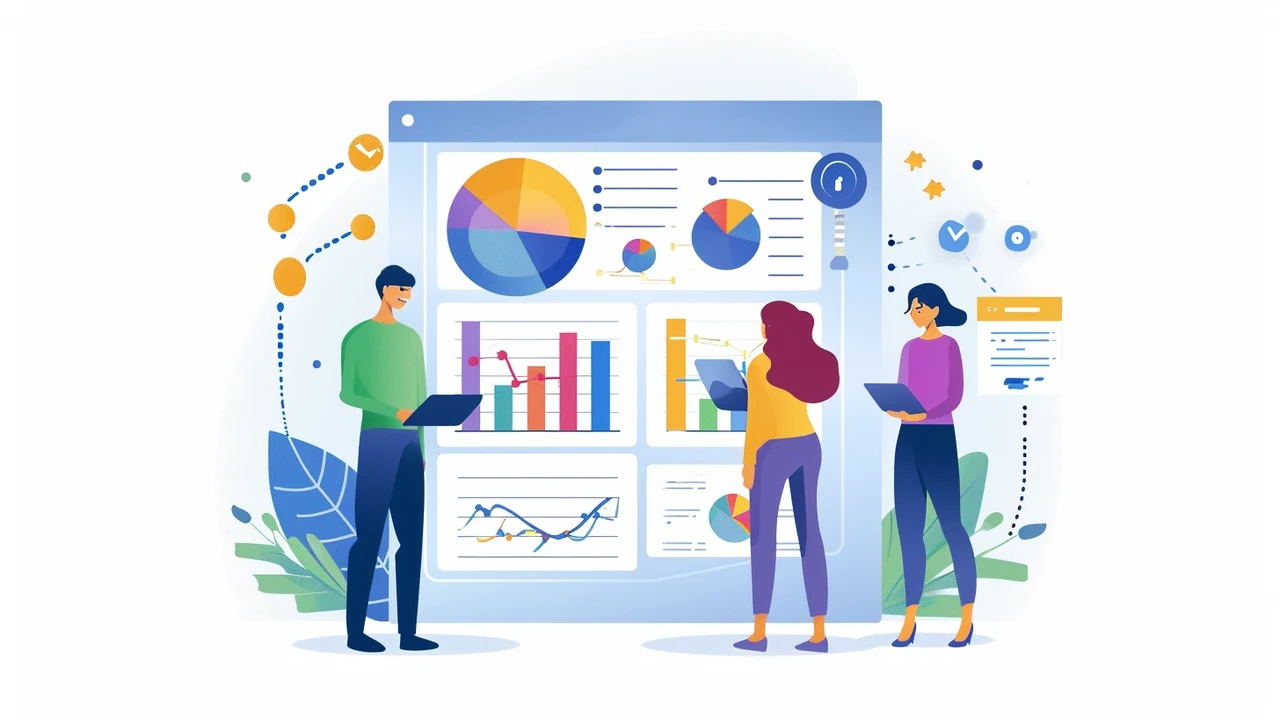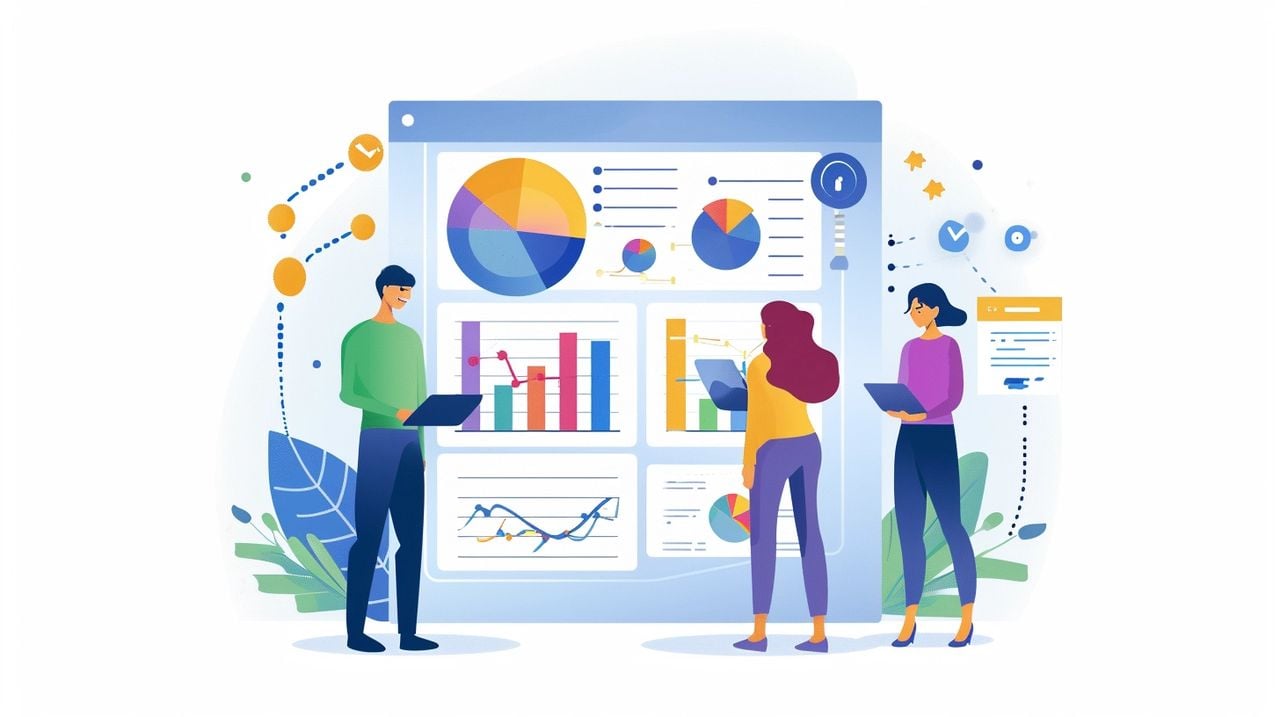
Do you have large PDFs, Excel spreadsheets, CSV files or mountains of data you need to analyze quickly and effectively. Using AI can quickly provide results you can use to track trends, opportunities and issues that may be happening in your business market or sector. Today in the fast-paced world of business technology and information, the ability to analyze data effectively is more crucial than ever. This guide will walk you through how to use ChatGPT for data analysis and research enabling you to enhance your data analysis skills, making the process more efficient and insightful. As well as saving you precious time and resources
With industries across the board relying on data to make informed decisions, thanks to the explosion of artificial intelligence (AI) over the last 12 months tools we use to interpret this data are evolving. One such tool that has taken the data and research community to new levels is ChatGPT. Known primarily for its ability to hold conversations and easily accessible user interface, ChatGPT has proven itself to be a valuable asset in the realm of data analysis.
ChatGPT’s range of abilities extends far beyond simple conversation. It has become an essential tool for data cleaning, which involves correcting errors and completing missing information in datasets. This step is vital for ensuring the accuracy of your analysis. Furthermore, ChatGPT can help you make sense of complex data, allowing you to understand and work with your data more effectively.
To begin your journey with ChatGPT in data analysis, you’ll need to start with a dataset. Kaggle is an excellent resource, offering a wide array of free datasets on various topics. Once you’ve selected a dataset, you can introduce it to ChatGPT. The AI will then guide you through the process of breaking down the data, highlighting trends, identifying outliers, and pinpointing key metrics that are crucial for making informed decisions.
ChatGPT data analysis tips & tricks for beginners
Kaggle is more than just a source for datasets; it’s a community where learning is encouraged through the shared experiences of its users. By working with Kaggle’s datasets and applying the insights provided by ChatGPT, you can improve your data analysis skills and be better prepared for practical, real-world challenges. Kaggle is a platform that offers you a chance to work with real-world data. It’s a place where you can learn, share, and collaborate with others. Here’s what you need to know about Kaggle datasets for practice.
With the assistance of ChatGPT, you can uncover significant trends and outliers within your data. Recognizing these patterns and anomalies is essential for understanding the factors that may impact the results of your analysis.
How to use ChatGPT to clean data
ChatGPT is a tool that can help you with data cleaning and interpretation. Let’s break down what this means for you. Data cleaning is like tidying up a messy room. Imagine you have a lot of information, but some of it is wrong or in the wrong place. Data cleaning is the process of fixing mistakes, removing what you don’t need, and organizing everything so it makes sense. ChatGPT is a large language model and AI model that can:
– Find errors in your data.
– Suggest corrections.
– Help you remove duplicate information.
– Guide you to organize your data better.
With ChatGPT, you can clean your data faster and more accurately. This means you can trust your data and make better decisions.
ChatGPT and Data Interpretation
Data interpretation is about understanding your data. It’s like reading a story and looking for the meaning behind the words. You want to know what your data is telling you. ChatGPT can:
– Explain complex data in simple terms.
– Help you see patterns and trends.
– Answer questions about your data.
– Make predictions based on your data.
By using ChatGPT, you can get a clearer picture of what your data means for your project or business.
– It saves time: ChatGPT works quickly, so you don’t have to spend hours on data cleaning and interpretation the data analysis and research.
– It’s accurate: ChatGPT reduces the chance of human error.
– It’s easy to use: You don’t need to be a data expert to use ChatGPT. OpenAI has made ChatGPT available for free allowing you to test out the AI without parting with your hard earned cash. Other subscription packages are also available in the form of Plus, Team and Enterprise starting from $20 per month. However if you are looking for a free alternative to ChatGPT which uses the same OpenAI GPT-4 technology it might be worth your while checking out Microsoft’s Copilot AI personal assistant.
ChatGPT has emerged as a formidable tool in data analysis. By utilizing the guidance provided in this article, you can begin to tap into the potential of ChatGPT to clean, interpret, and analyze data with increased competence. Whether you are just starting out or looking to refine your existing skills, the resources mentioned, including Kaggle and the ChatGPT Mastery course, will support your growth in becoming proficient in data analysis with the help of ChatGPT.
Filed Under: Guides, Top News
Latest timeswonderful Deals
Disclosure: Some of our articles include affiliate links. If you buy something through one of these links, timeswonderful may earn an affiliate commission. Learn about our Disclosure Policy.

